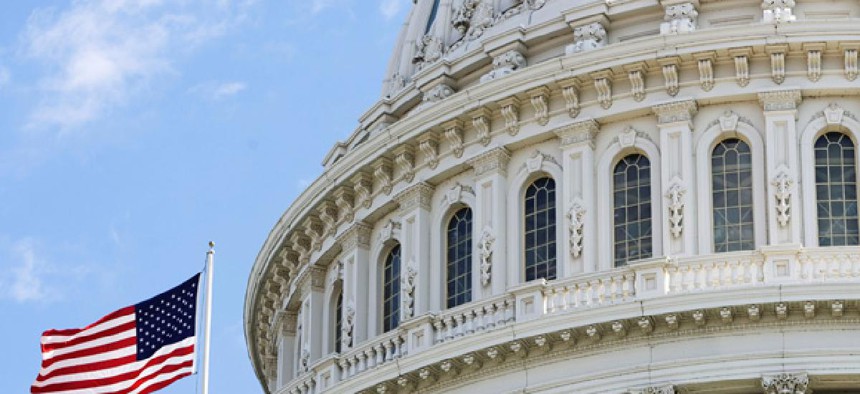Senate passes U.S. Postal Service overhaul
Legislation would let USPS offer buyouts and early outs to 100,000 employees.
This story has been updated with comment.
The Senate passed sweeping U.S. Postal Service reform legislation by a 62-37 vote Wednesday, after months of debate and procedural halts on the measure.
The legislation (S. 1789) allows the agency to offer buyout and early retirement incentives to 100,000 employees, switches to five-day delivery if officials cannot come up with other cost savings within two years, and restructures a requirement that the Postal Service prefund its retirement health benefits with more than $5 billion annually.
It would transfer more than $11 billion from the Civil Service Retirement and Disability Fund to the Postal Service to help process the large number of USPS employees scheduled to retire in the next few years. It also expands the alternatives USPS must consider before closing a post office.
The Congressional Budget Office estimated that a previous version of the bill would cost the government $6.3 billion in the next 10 years, a figure USPS has disputed.
New amendments passed into the bill this week scale back workers’ compensation benefits, curtail USPS executive compensation to a level on par with Cabinet secretaries and addresses the backlog of USPS retirement claims at the Office of Personnel Management.
Labor unions were particularly displeased with the inclusion of the workers compensation provision. The measure, first introduced by S. 1789 co-sponsor Sen. Susan Collins, R-Maine, would give workers injured on the job 50 percent of their pre-disability pay upon reaching retirement age. Under current law, employees disabled on the job can get up to 75 percent of their basic salaries tax-free, plus medical-related expenses. About half the federal employees who currently receive workers’ comp are postal workers.
The proposal was included in the final bill after an amendment to eliminate it, introduced by Sen. Daniel Akaka, D-Hawaii, failed 46-53.
“The Senate has missed an opportunity to make real and positive changes in a program designed to assist dedicated federal workers injured in their duties,” National Treasury Employees Union President Colleen Kelley said in a statement.
The National Active and Retired Federal Employees Association released a similar statement on the workers’ compensation changes included in the bill.
An amendment introduced late Wednesday by Sen. Claire McCaskill, D-Mo., however, establishes workers’ compensation for government employees injured by acts of terrorism or in zones of armed conflict.
A provision proposed by Sen. John Rockefeller, D-W.V., calling for a new health program for USPS that would give employees benefits comparable to the Federal Employees Health Benefit Plan, passed unanimously. The Postal Service and many lawmakers have previously disagreed on how to structure a new health plan for USPS employees.
Amendments that failed to make it into the bill included a prohibition on collective bargaining for USPS employees and one that would have required eligible employees to retire without buyout incentives.
The bill now will move to the House, where it likely faces a fight with Republicans who support reducing delivery from six to five days a week without the two-year waiting period and want to establish a panel similar to the Defense Department’s Base Closure and Realignment Commission to make decisions about closings and finances.
House Oversight and Government Reform Committee Chairman Darrell Issa, R-Calif., called the Senate's approach unacceptable.
"Instead of finding savings to help the Postal Service survive, the Senate postal bill has devolved into a special interest spending binge that would actually make things worse,” he said.
USPS’ moratorium on facility closures expires May 15; another amendment added to the Senate measure Wednesday would require the agency to wait to close those facilities until after a final postal reform bill is passed into law. More than 200 facilities nationwide are slated for closure.



